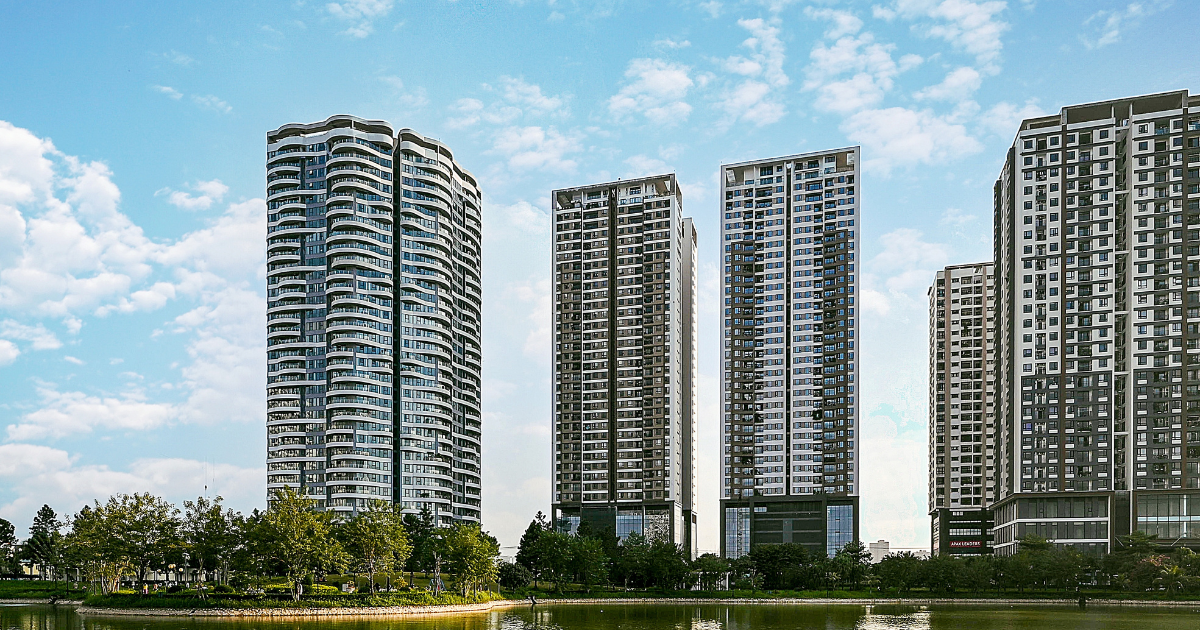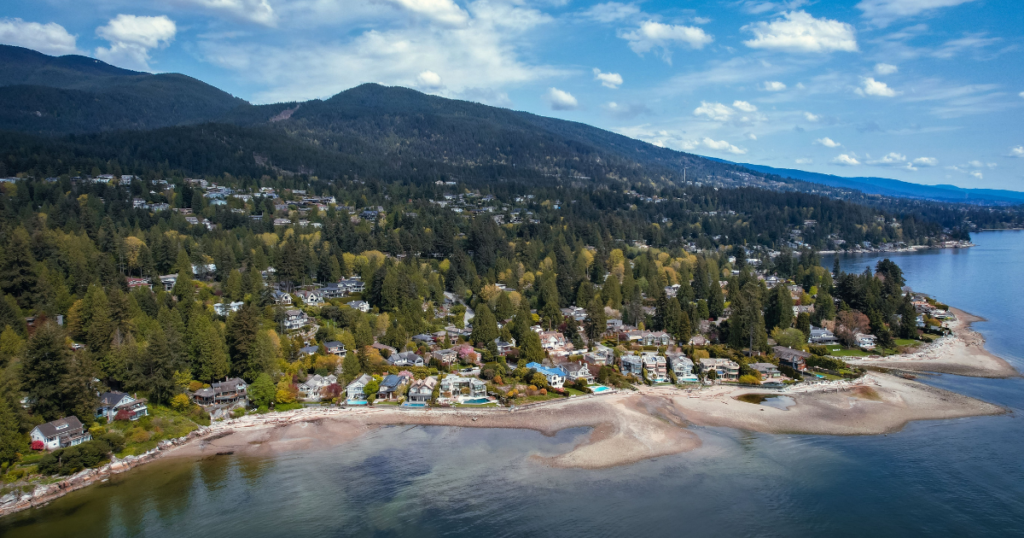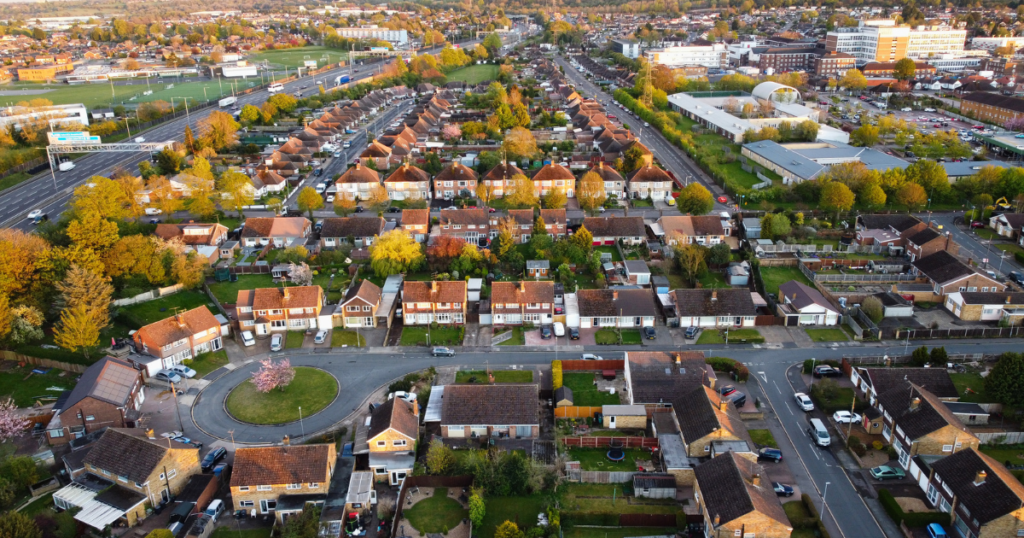Buying a condominium in British Columbia (BC) can be an exciting yet complex process. With its unique strata laws and regulations, it’s important to understand the essential factors involved in purchasing a condo.
Whether you’re a first-time homebuyer, an investor, or looking for a retirement property, understanding the nuances of the condo market in BC is crucial for a successful purchase.

1. Understanding the Condo Market in BC
Understanding the condo market in British Columbia (BC) is crucial for any potential buyer.
This market is influenced by various factors, including geographical location, economic conditions, and changing demographic trends. Here’s a detailed look at the BC condo market:
Urban vs. Rural Dynamics
- Urban Areas: In cities like Vancouver and Victoria, the condo market is often driven by high demand due to urbanization, limited space, and a desire for proximity to amenities and workplaces. Prices tend to be higher, and the market can be more competitive.
- Rural Areas: In contrast, condos in rural areas or smaller towns might offer more affordable options, but with fewer amenities and a potentially slower pace of life.
Pricing Trends
- Market Fluctuations: Condo prices in BC can fluctuate based on factors like the local economy, interest rates, and housing policies. Urban centers, particularly Vancouver, often see higher price points due to strong demand.
- Affordability Issues: In some areas, particularly in major cities, affordability can be a significant concern, with prices outpacing average income levels.
Types of Condos Available
- High-Rise vs. Low-Rise: High-rise condos typically offer more amenities (e.g., gyms, pools) but can come with higher fees and less privacy. Low-rise buildings or townhouse-style condos might offer more of a community feel and often have lower strata fees.
- New Developments vs. Resale Units: New condos may offer modern amenities and designs but can come with risks like construction delays. Resale units often provide a more established sense of community and a track record to review in strata minutes.
Demographic Shifts
- Young Professionals: Often attracted to urban condos for lifestyle and convenience, close to work and entertainment.
- Retirees: Increasingly moving towards condos for downsizing, requiring less maintenance and offering convenient amenities.
- Investors: Drawn to the condo market for rental opportunities, particularly in university towns and major cities where rental demand is high.
Economic Conditions
- Interest Rates: Fluctuations in interest rates can significantly impact condo buyers, affecting mortgage costs and affordability.
- Employment Trends: The overall health of the economy, including employment rates in BC, influences the ability of individuals to purchase condos.
Government Policies and Regulations
- Taxation and Incentives: Policies such as the foreign buyer tax, empty homes tax, and first-time home buyer incentives can impact the market.
- Building Regulations: Zoning laws and building regulations also affect the development of new condo projects and the availability of units.
Future Outlook
- Market Predictions: Experts often analyze trends in migration, employment, and global economic conditions to predict future market movements.
- Sustainability and Growth: With a growing emphasis on sustainability, new condo developments are increasingly focusing on eco-friendly designs and features.
Recommended: Rural Properties for Sale in British Columbia: Your Slice of Paradise
When purchasing a condominium in British Columbia (BC), several financial considerations come into play, which are crucial to understand for a successful and financially sound investment.
Here’s an overview of the key financial aspects:
Budgeting and Financing
- Determining Your Budget: Assess your financial situation to determine how much you can afford. Consider your income, debts, and other financial commitments. Remember to factor in not just the purchase price but also other upfront costs like down payment, legal fees, and taxes.
- Mortgage Pre-Approval: Obtain a mortgage pre-approval to understand how much a lender is willing to finance. This step also shows sellers that you are a serious buyer. Pre-approval helps narrow down your search to properties within your budget.
- Down Payment: The size of your down payment will affect your mortgage amount and monthly payments. In Canada, the minimum down payment is 5% of the home’s purchase price, but a down payment of 20% or more will avoid the need for mortgage loan insurance.
Additional Costs
- Closing Costs: Include legal fees, title insurance, property transfer tax, and any other administrative costs. Typically, closing costs range from 1.5% to 4% of the purchase price.
- Property Taxes: Research the property tax rate in the area where you’re buying, as this will be an ongoing annual cost.
- Condo Fees (Strata Fees): Condo fees cover maintenance of common areas and building amenities. They vary greatly depending on the building and should be factored into your monthly budget.
- Home Insurance: While the condo corporation’s insurance covers the building and common areas, you’ll need your own insurance for your unit’s interior and contents.
- Utility Costs: Consider costs for utilities that may not be included in the condo fees, such as electricity, internet, and cable.
Investment Potential
- Rental Opportunities: If you plan to rent out the condo, research the rental market in the area to understand potential rental income and vacancy rates. Consider the condo corporation’s rules regarding rentals, as some have restrictions.
- Resale Value: Consider factors that could affect the future resale value: location, condo size, amenities, and the financial health of the condo corporation.
Long-Term Financial Commitment
- Mortgage Payments: Plan for long-term affordability of mortgage payments, especially if interest rates rise or your financial situation changes.
- Maintenance and Repair Costs: In addition to regular condo fees, be prepared for potential special assessments for major repairs or upgrades to the building.
- Market Fluctuations: Real estate markets can fluctuate. Be prepared for the possibility of market downturns, which can affect property values and resale opportunities.
Understanding and planning for these financial considerations is essential in making a wise condo purchase in BC. It’s not just about the cost of buying the condo but also about managing the ongoing expenses associated with condo ownership.
Related: First-Time Home Buyer Tips In British Columbia
3. Legal and Administrative Aspects of Buying a Condominium in BC
Here’s an overview of the key legal and administrative considerations:
Understanding Strata Corporations
- What is a Strata? In BC, a condominium is typically part of a strata corporation. This legal entity manages the common elements of the condo complex, such as the building exterior, hallways, gyms, and gardens.
- Strata Council and Meetings: The strata council, elected by the condo owners, oversees the management of the property. As a condo owner, you have voting rights in strata meetings, where decisions about the building and its management are made.
Strata Fees and Special Assessments
- Strata Fees (Maintenance Fees): These monthly fees cover the costs of maintaining and repairing common property, and can vary based on the size of your unit and the amenities offered. It’s important to know how these fees are calculated and what they cover.
- Special Assessments: Occasionally, unexpected major repairs or legal issues may arise that aren’t covered by the strata’s reserve fund. In such cases, a special assessment may be levied on the owners to cover these costs.
Reviewing Strata Documents
- Importance of Strata Minutes and Documents: Before purchasing, review the strata’s meeting minutes, bylaws, financial statements, and the Depreciation Report. This review can reveal past, present, and future issues with the property. Pay attention to any mentions of ongoing disputes, upcoming costly repairs, or significant changes in strata fees.
- Depreciation Report: This report provides insight into the building’s long-term maintenance plan and any anticipated major repairs or replacements needed in the future.
Legal Considerations
- Bylaws and Restrictions: Understand the strata’s bylaws, which may include rules about pets, rentals, noise, parking, and alterations to your unit. Some strata corporations have age restrictions or other unique rules that could affect your lifestyle.
- Title Search and Insurance: Conduct a title search to ensure there are no liens or legal claims against the property. Title insurance can protect you against potential title defects.
Purchase and Sale Agreement
- Understanding the Contract: When you make an offer, it’s typically done through a Contract of Purchase and Sale. This document should outline all terms and conditions of the sale, and may include subjects (conditions) that need to be fulfilled before the sale is finalized. Consider having a lawyer or notary review the agreement before you sign it.
Working with Professionals
- Legal and Real Estate Professionals: Engaging with a real estate agent experienced in condos and a lawyer or notary familiar with BC real estate law is crucial. They can help navigate the purchase process, interpret strata documents, and ensure your legal interests are protected.
Closing Process
- Final Steps: Before closing, ensure all subjects have been removed, and all legal and financial aspects are in order. On the closing day, legal ownership will transfer, and financial transactions will be completed.
4. Finding the Right Condo in BC
Finding the right condo in British Columbia (BC) involves careful consideration of location and the guidance of experienced real estate professionals. Here’s an overview to help you in this process:
Location Considerations
- Lifestyle Preferences: Decide if you prefer the bustling city life, a quieter suburban area, or a more secluded rural setting. Each offers a different living experience and amenities. Also, consider your daily commute and the distance to educational institutions if you have children.
- Neighborhood Characteristics: Research the safety of the neighborhood and its demographic profile to ensure it aligns with your lifestyle and comfort level. Each area has its own culture and community feel. Spend time in the neighborhood to see if it fits your personality and lifestyle.
- Access to Amenities: Proximity to shopping centers, grocery stores, and essential services is important for convenience. If you value fitness and leisure activities, look for neighborhoods with good access to parks, gyms, and recreational centers.
- Transportation and Accessibility: For those who rely on public transportation, access to bus routes, SkyTrain stations, or other transit options is crucial. Consider the availability of parking (both for you and visitors) and the general traffic conditions in the area.
- Future Development Plans: Research any planned developments or zoning changes in the area, as they can impact the future livability and value of your condo.
Working with Real Estate Professionals
- Choosing a Realtor: Work with a realtor who specializes in condominiums and understands the unique aspects of condo buying, especially in the BC market. A realtor with local expertise can provide valuable insights into different neighborhoods and market trends.
- Real Estate Agent vs. Buyer’s Agent: A real estate agent typically works for the seller and aims to sell the property at the highest possible price. A buyer’s agent exclusively represents your interests, helping you find the best property at the best price.
- Benefits of Professional Assistance: Realtors have access to the latest market data and can help you make an informed decision. Experienced agents can effectively negotiate prices and terms on your behalf. They can handle the paperwork, coordinate viewings, and guide you through the buying process.
- Building a Team: In addition to a realtor, consider hiring a real estate lawyer or notary and a mortgage broker. This team can guide you through the financial, legal, and administrative aspects of buying a condo.
- Home Inspection: Even though it’s a condo, getting a home inspection is wise. A professional inspector can identify any issues within the unit and common property.
You might like: Current Real Estate Market Trends BC
5. Making an Offer and Closing the Deal
Making an offer and closing the deal on a condo in British Columbia (BC) are critical stages in the home buying process. It’s important to approach these steps with careful planning and understanding.
Here’s a guide to help you navigate this phase:
Making an Offer
- Preparing the Offer: Determine a fair offering price based on recent sales of similar condos in the area, the property’s condition, and current market conditions. Your realtor can assist with this analysis. Include any conditions that must be met before the sale is finalized, such as financing approval, a satisfactory home inspection, or a review of strata documents.
- Offer Presentation: Your realtor will present the offer to the seller or the seller’s agent. This may lead to negotiations on price, conditions, and closing dates.
- Negotiating the Offer: Be prepared for counteroffers. Your realtor will negotiate on your behalf, aiming to reach a mutually agreeable deal. Be flexible but clear about your limits. A good negotiation strategy balances assertiveness with willingness to compromise.
Closing the Deal
- Removing Subjects: Once all conditions (subjects) are satisfied, you’ll formally remove them in writing. This step solidifies your commitment to the purchase. If you cannot satisfy the conditions, you can withdraw your offer without penalty.
- Finalizing the Mortgage: With subjects removed, finalize your mortgage arrangements. Ensure all necessary paperwork is completed, and the financing is in place.
- Legal Process: Engage a lawyer or notary to handle the legal aspects of the purchase. They will prepare and record all necessary documents, such as the transfer of title and mortgage registration. Your lawyer or notary will conduct a title search to confirm the seller legally owns the property and that there are no liens or encumbrances.
- Closing Costs: Be prepared to pay closing costs, which may include legal fees, property transfer tax, and any adjustments (e.g., property taxes or strata fees that the seller prepaid for the period after you take ownership).
- Final Walk-Through: Before closing, do a final walk-through of the condo to ensure it’s in the agreed-upon condition.
- Completion Day: On completion day, your lawyer or notary will transfer the funds to the seller’s lawyer, and the title will be transferred to your name. Once the transaction is registered, you’ll receive the keys to your new condo.
- Possession Day: This is the day you officially take possession of the condo. It may be the same as the completion day or a few days later.
- Post-Purchase: Update your address for all relevant documents and services. Begin your condo insurance coverage from the day you take possession.
6. Living in Your Condo!
Living in a condo offers a unique lifestyle with its own set of advantages and considerations. Adapting to condo living, especially for those who are new to it, involves understanding community living, managing space effectively, and getting involved with the condo community.
Here’s a guide to help you adapt to and enjoy condo living:
Understanding Community Living
- Shared Spaces and Amenities: Condos often come with shared amenities such as gyms, pools, party rooms, and gardens. Familiarize yourself with these spaces and the rules for using them.
- Noise and Privacy: Living in close proximity to others means being mindful of noise levels. It also means adjusting to having neighbors nearby, which can be a change if you’re used to more private living spaces.
Managing Your Space
- Efficient Use of Space: Condos can be smaller than standalone houses, so it’s important to maximize and efficiently use the space. Consider space-saving furniture and creative storage solutions.
- Decor and Personalization: Personalize your space to make it feel like home. Even small changes like paint, lighting, and decor can have a big impact.
Participating in the Strata Council
- Understanding Strata Meetings: Attend strata meetings to stay informed about what’s happening in your building. These meetings are where decisions about the building and its management are made.
- Volunteering on the Council: Consider volunteering on the strata council or a committee. It’s a great way to have a say in the management of the building and to meet your neighbors.
Building Relationships with Neighbors
- Fostering Community: Building good relationships with your neighbors can make condo living more enjoyable. Simple acts like greeting neighbors and participating in community events can help foster a sense of community.
- Resolving Conflicts: If issues arise with neighbors, try to resolve them amicably. Your strata council can also provide guidance on resolving disputes.
Understanding and Following Bylaws
- Familiarize Yourself with the Rules: Every condo has its own set of bylaws and rules. Make sure you understand these, as they govern aspects like pet ownership, renovations, and balcony use.
Maintenance and Upkeep
- Inside Your Unit: Regular maintenance of your unit, such as servicing appliances and preventing water damage, is your responsibility.
- Common Areas: Although the strata is responsible for maintaining common areas, residents can play a role in keeping these spaces clean and reporting any issues.
Financial Responsibilities
- Paying Strata Fees: Pay your strata fees on time. These fees fund the maintenance of the building and its amenities.
- Budgeting for Special Assessments: Occasionally, large repairs or upgrades may result in special assessments. It’s wise to budget for these potential extra costs.
Enjoying the Benefits
- Lifestyle Perks: Enjoy the perks of condo living, like lower maintenance worries, security features, and community amenities.
- Urban Living: Many condos offer the advantage of being close to urban centers, providing easy access to shops, restaurants, cultural events, and public transit.
Conclusion
Buying a condo in British Columbia can be an exciting and rewarding experience, offering the perks of homeownership in some of the most desirable locations in Canada.
By understanding the market, being aware of the financial and legal implications, and carefully selecting the right property, you can make a well-informed decision that meets your needs and lifestyle.



